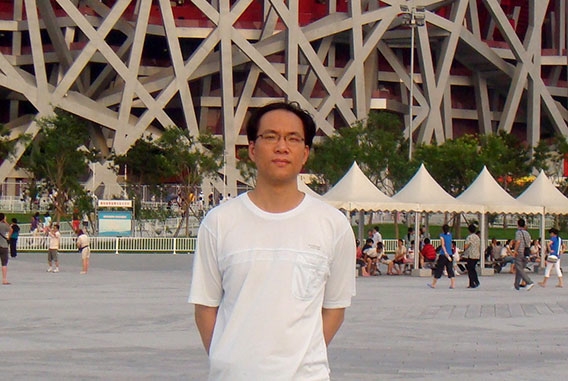CMB Profile: Jian Weiyan

Jian Weiyan is a lecturer at Peking University Health Science Center’s Department of Health Policy and Management where his research focuses on health systems and health insurance. He has received research funding from multiple leading institutions, including the National Science Foundation of China, the Ministry of Education, Ministry of Health, and the China Medical Board. His findings have been published both within China and in international journals. In addition to his teaching and research roles, he also provides technical consultation to government departments including the Beijing Bureau of Health and Beijing Bureau of Human Resources and Social Security. Dr. Jian earned his PhD from Peking University School of Public Health in 2007.
Q: How did you first start working with CMB?
A: In 2008, CMB collaborated with the Ministry of Health Statistics Information Center to support a group of young Chinese scholars utilizing National Health Services Survey data for their research. I was very fortunate to be part of this project. In contrast to other research projects, which usually focus exclusively on research, this CMB-funded project also supported the scientific training of young scholars like myself. This project introduced me to CMB, and left a deep impression on me and other young Chinese scholars.
Q: In 2010 you were awarded a CMB Faculty Development Award for advanced studies at Oxford University in the UK. How did this fellowship benefit you and your work?
A: With support from CMB, I was able to study at Oxford University with health economist Winnie Yip. I enjoyed the unique academic atmosphere at Oxford, where I had access to a rich collection of academic resources and met many excellent scholars. While there I was able to further develop my knowledge and build my network, increasing my opportunities for collaboration. Since returning to China, I’ve kept in touch with Professor Yip and continue to work with her. I look forward to more collaborative research opportunities in the future.
Q:What are you working on now?
A: My current research focuses on the analysis of health system performance and the design of incentive mechanisms. I work on analyzing the impact of different health policies and management mechanisms on relevant stakeholders. Ultimately, this research is geared towards learning how to design effective incentive mechanisms for health systems.
Q: Part of your research investigates payment systems. What is new or exciting in this area?
A: The payment systems for healthcare can shape the incentives of healthcare providers in critical ways. Payment system reform has become a hot research topic in China, especially following the newest rounds of national health reforms. Supported by CMB, I’ve investigated the effectiveness of payment system reform, focusing on several types of payment reform (capitation, total prospective payment, DRG payment systems, etc.) taking place in different locations throughout China. One goal of my research is to explore how different payment systems might be best applied to different environments and settings so as to capitalize on their advantages while mitigating their weaknesses. For example, hospitals that shift from a fee-for-service payment system to a total prospective payment system are incentived to excessively limit services, so health service supervision mechanisms must be implemented to avoid decreases in the quality of health services. No doubt—as health management develops in China, the design of payment systems and the policies that effectively support them will be more complex and nuanced.
Q: What will you work on next?
A: In the future I’ll continue to research incentive mechanisms with a focus on evaluation. China is a nation with tremendous regional differences, corresponding with differences in policies and practices. This is a thrill for researchers, because it means there are abundant research subjects and new areas for inquiry. I look forward to having the opportunity to cooperate with researchers across different regions, both within China and internationally, to carry out analysis and evaluation of different health policy systems which will enrich our understanding by allowing us to combine theoretical analysis with practice to promote research and policy.
Q: What words of wisdom to you have for young scholars?
A: As China places more value on evidence-based and scientific decision-making, scientific research will become more and more important. I really believe that as long as we young scholars devote ourselves wholeheartedly to our work, we can all enjoy a bright future.

